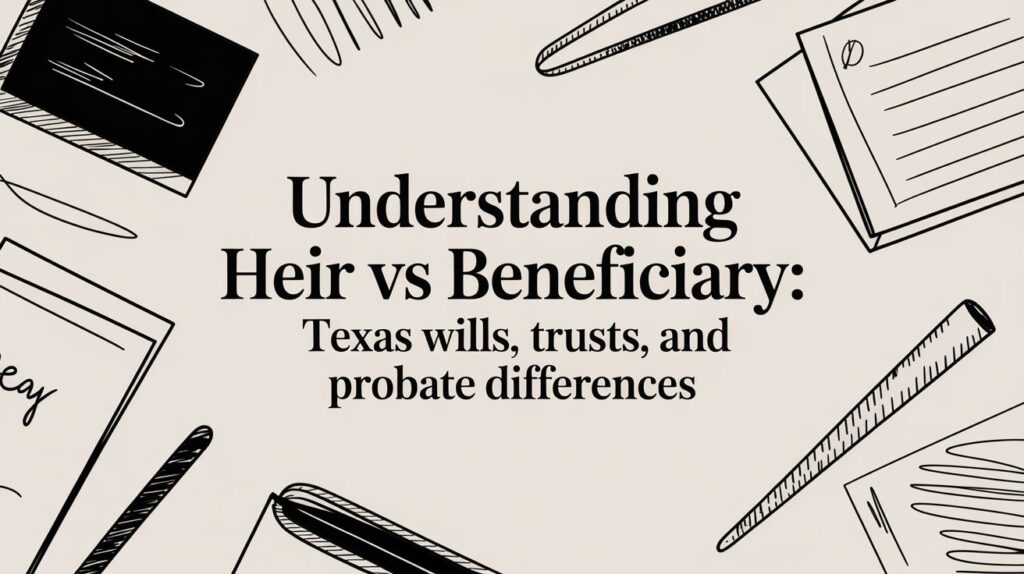Understanding Intestate Succession in Texas
Intestate succession refers to the legal process that determines how a deceased person's assets are distributed when they die without a valid will. In Texas, the intestacy laws dictate that the estate is divided among surviving relatives based on a specific hierarchy, which can include spouses, children, parents, and siblings.
For example, if a person dies without a will and is survived by a spouse and children, the spouse typically receives one-third of the community property and the children share the remaining two-thirds. Understanding these laws is crucial for families navigating the complexities of estate distribution in Texas.
Common Misconceptions About Intestate Succession
Many people believe that if they die without a will, their estate will automatically go to the state. However, this is a common misconception. In reality, intestate succession laws ensure that assets are distributed to surviving family members according to established legal guidelines.
For instance, if an individual has no surviving spouse or children, their estate may pass to parents or siblings. It is important to clarify these misconceptions to help individuals make informed decisions about estate planning and avoid unintended consequences.
Steps to Take After a Loved One Dies Intestate
When a person dies intestate, the surviving family members should take specific steps to initiate the probate process. The first step is to file an application for probate in the appropriate Texas court, which will begin the legal proceedings necessary to administer the estate.
Following the filing, the court will appoint an administrator to manage the estate, ensure debts are paid, and distribute assets according to intestate succession laws. It is advisable for families to seek legal guidance during this process to navigate potential challenges effectively.
The Role of an Administrator in Intestate Succession
The administrator plays a vital role in the intestate succession process, acting as the legal representative of the deceased's estate. This individual is responsible for gathering assets, paying debts, and distributing the remaining property to heirs as dictated by Texas law.
Typically, the court appoints an administrator, often a close family member or friend, to ensure that the estate is handled properly. Understanding the responsibilities and legal obligations of an administrator can help streamline the probate process and mitigate disputes among heirs.










